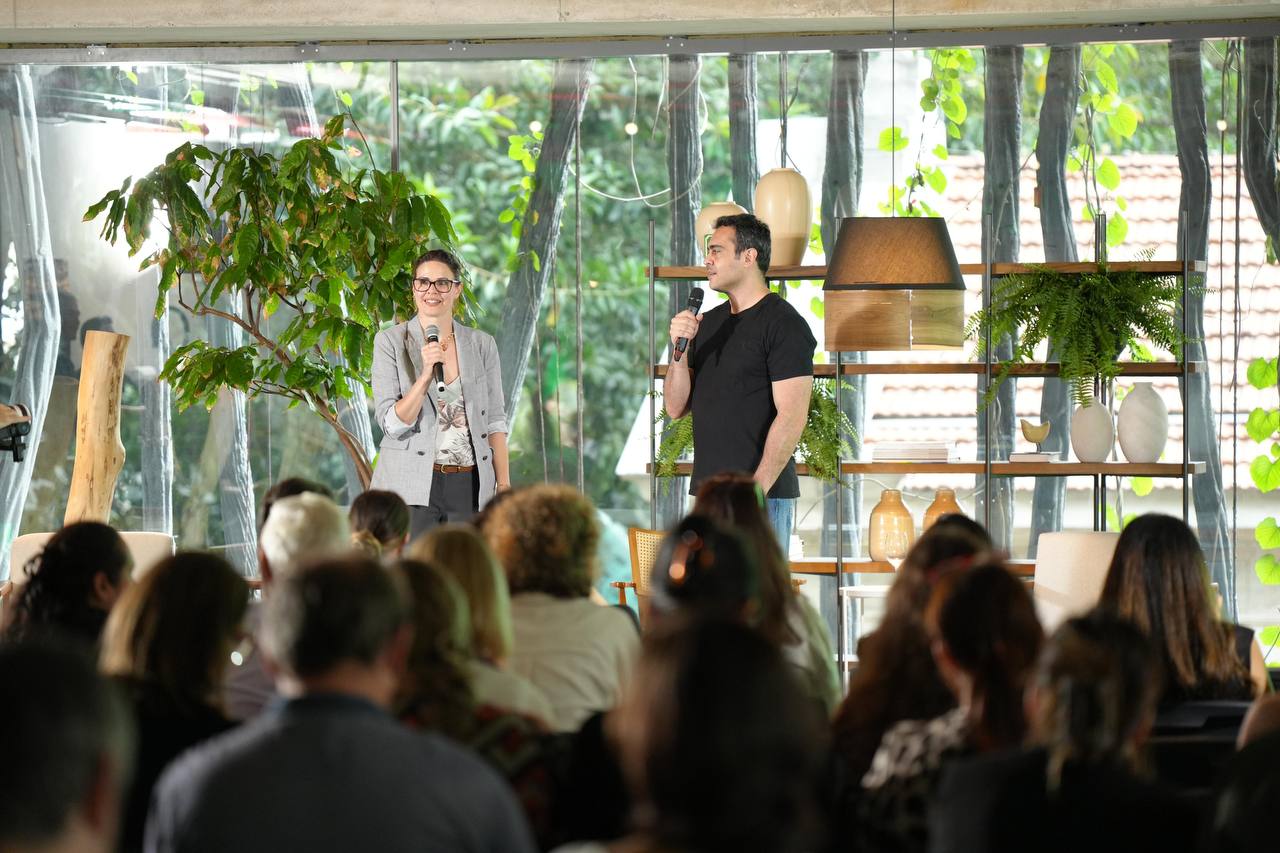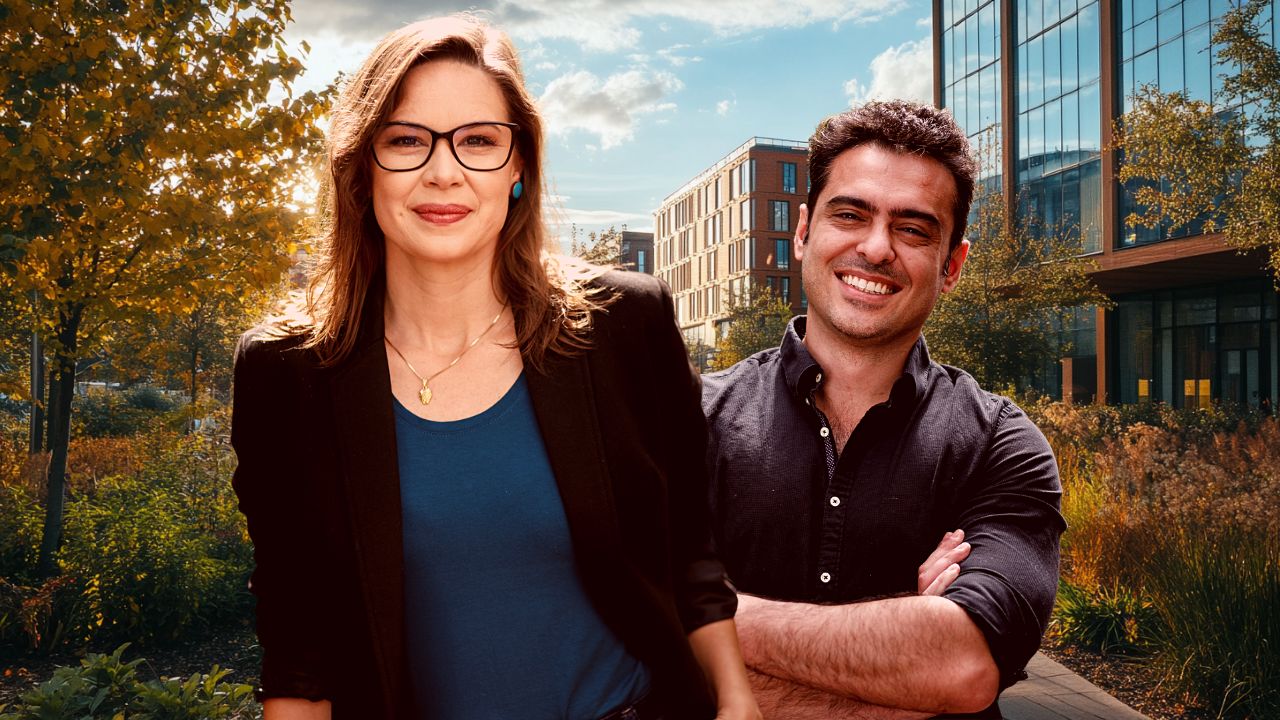





A 2-day immersion into the future of sustainable construction
The role of sustainable consultants has never been more critical as the world becomes more aware of the urgent need to address environmental and social issues. These professionals assist organizations and businesses in becoming more environmentally and socially responsible, improving their sustainability while lowering their environmental impact.
The field of sustainable consulting is rapidly expanding, and the demand for these professionals is expected to rise further in the coming years. In this article, we will look at what sustainable consultants do, how to become one, their qualifications, key areas of expertise, challenges, and the future outlook for sustainable consulting.
We invite you to continue reading to understand better this critical field and the role that sustainable consultants play in ensuring a more sustainable future for all of us.
What is sustainable consulting? And what does this professional do?
A sustainable consultant is a professional who works with organizations to help them become more environmentally and socially responsible. These professionals work to improve the sustainability of a company’s operations and products while also reducing its environmental impact.
Environmental Assessment: A sustainable consultant’s primary responsibility is to conduct assessments of a company’s current practices and operations. This assessment includes an examination of the organization’s energy consumption, waste management, and water usage. The consultant will then identify areas where the company’s sustainability can be improved and develop a plan to implement these changes. This process can include conducting a Life Cycle Assessment.
Compliance: Sustainable consultants offer advice on how to comply with environmental regulations. This advice includes assisting organizations in understanding and adhering to laws and regulations concerning air and water pollution, hazardous waste, and other environmental concerns. Sustainable compliance also refers to social issues, such as fair labor practices and respecting human rights, and governance issues, such as actions to prevent corruption. They will help organizations identify and mitigate any potential risks associated with non-compliance.
Development of Sustainable Strategies: A sustainable consultant’s role also includes assisting businesses in developing and implementing sustainable business strategies. These strategies include identifying cost-saving opportunities through energy efficiency and waste reduction and creating more sustainable products and services. Sustainable consultants will also help companies to identify new revenue streams, such as carbon offsetting or green procurement.
Communication: Sustainable consultants are also crucial in assisting businesses in communicating their sustainability efforts to stakeholders. Communication includes creating sustainability reports and informing customers, investors, and other stakeholders about the organization’s progress.
Standards and certifications: Sustainable consultants can assist your company in understanding and implementing sustainability standards and certifications. Knowledge of sustainability standards and certifications includes ISO 14001, LEED, and BREEAM standards, as well as certifications like the WELL building standard and the Living Building Challenge. Complying with non-mandatory standards and certifications will assist your company in demonstrating its commitment to sustainability and receiving recognition for its efforts.
Many environmentally conscious consultants have environmental science, engineering, or business backgrounds. Therefore, a degree in one of these fields is frequently required to work as a sustainable consultant. Experience in sustainability is also essential.
As more businesses recognize the value of being environmentally and socially responsible, sustainable consulting is rapidly expanding. As a result, the future outlook for sustainable consulting is bright, as demand for these professionals is expected to rise.
In summary, sustainable consultants play an essential role in assisting organizations and businesses to become more sustainable. They evaluate the company’s current practices and operations, advise on environmental and social regulations compliance, develop and implement sustainable business strategies, and assist companies in communicating their sustainability efforts to stakeholders. With the growing demand for sustainability, the future of sustainable consulting looks bright.
What qualifications are needed for sustainable consulting?
Sustainable consultants assist organizations and businesses in becoming more environmentally and socially responsible. These professionals work to improve the sustainability of a company’s operations and products while also reducing its environmental impact.
Several qualifications are required to become a sustainable consulting professional:
Education: Often, becoming a sustainable consultant necessitates a solid educational background in environmental science, engineering, or business. Employers typically prefer candidates with a Bachelor’s or Master’s degree in Environmental Science, Sustainability, or a related field. This educational background will provide a solid foundation in sustainability principles and the skills required to succeed in this field.
Experience: Experience in the field of sustainability is also essential. Experience can be obtained through internships, volunteer work, or entry-level positions in sustainability-related roles. Building a solid portfolio of work experience will be advantageous when looking for a job as a sustainable consultant.
Skills: Strong analytical skills, the ability to think strategically, and excellent communication skills are required for sustainable consultants. It’s also helpful to be familiar with common software and sustainability tools, such as Life Cycle Assessment tools, Energy Modeling Software, and Greenhouse Gas Accounting tools.
Certifications: In sustainable consulting, certification is becoming increasingly popular. Many professional organizations provide sustainable consultant certification programs. The LEED Green Associate, WELL Accredited Professional, and Living Building Challenge Accredited Professional are among the most well-known certifications.
Networking: Networking is also essential for sustainable consultants. Joining professional organizations and attending sustainability-related events and conferences can help you network with other professionals in the field, learn about new developments, and find job opportunities.
Continuous Learning: Because sustainability is rapidly evolving, sustainable consultants must stay current on the latest developments. Staying informed about new regulations and policies, as well as new technologies and best practices in sustainable business, is part of this.
To summarize, sustainable consultants need a combination of education, experience, skills, qualifications, networking, and continued learning to be successful in this field. A solid educational background in environmental science, engineering, or business is vital, as well as experience in sustainability, strong analytical skills, strategic thinking, and excellent communication skills. Certifications and networking are becoming more popular and essential in this field, and continued learning is a must to stay current in this rapidly evolving field.










A 2-day immersion into the future of sustainable construction
How can I find a sustainable consulting firm?
Finding a sustainable consultant can be difficult, but working with someone with the knowledge and expertise to assist your organization or business in becoming more environmentally and socially responsible is critical.
Here are some pointers for locating a sustainable consulting firm:
- Research: Begin by looking for sustainable consultants in your area. Look for consultants with industry experience and a track record of assisting organizations and businesses in becoming more sustainable. Examine their website, case studies, and testimonials to understand their knowledge and expertise.
- Professional Organizations: Join professional organizations and attend sustainability-related events and conferences. This practice is an excellent way to network with other industry professionals, learn about new developments, and find job opportunities. You can find a directory of sustainable consultants through many professional organizations.
- Referrals: Request referrals from coworkers, friends, or other professionals in your network. Personal recommendations can be extremely helpful in locating a consultant who is a good fit for your organization or business.
- Certifications: Look for consultants who have sustainability certifications. Certifications such as LEED Green Associate, WELL Accredited Professional, and Living Building Challenge Accredited Professional indicate that the consultant possesses the knowledge and expertise required to assist your organization in becoming more sustainable.
- Interviews: After you’ve narrowed down your list of potential consultants, set up interviews to learn more about their experience, qualifications, and approach. These meetings are an excellent opportunity to ask questions and determine whether the consultant is a good fit for your company or organization.
- Check references: Contact the references provided by the consultants to get a sense of their experience working with the consultant you are considering.
What is the average salary for a sustainable consulting professional?
The average salary for a sustainable consultant depends on various factors, including location, experience, and qualifications.
According to Glassdoor salary data, the average annual salary for a sustainable consultant in the United States is around $70,000. Entry-level positions typically pay $50,000 to $60,000 per year, with more experienced consultants earning up to $100,000 per year.
A sustainable consultant’s salary is also heavily influenced by location. For example, sustainable consultants in major cities like New York, San Francisco, and Los Angeles earn more than those in smaller towns or rural areas.
Experience is also an essential factor in determining a sustainable consultant’s salary. Those with more experience and a successful track record can command higher salaries than entry-level consultants.
Certifications and qualifications also play a role in determining a sustainable consultant’s salary. Those with certifications such as LEED Green Associate, WELL Accredited Professional, and Living Building Challenge Accredited Professional earn more than those without certification.
It is important to note that the field of sustainable consulting is rapidly expanding, and the demand for these professionals is expected to rise further. Furthermore, as public awareness of the importance of sustainability grows, so will the salary of sustainable consultants.
What are the main challenges sustainable consulting professionals face?
While sustainable consulting is a rewarding and growing field, there are several challenges that sustainable consultants may face in their work.
- Limited understanding of sustainability: One of the main challenges that sustainable consultants face is that many organizations and businesses do not fully understand sustainability and its benefits. As a result, sustainable consultants may need help to persuade decision-makers of the value of sustainability and the need for their services.
- Limited budget and resources: Organizations and businesses may hesitate to invest in sustainability because of limited budgets and resources. Such hesitation can make it difficult for long-term consultants to implement their recommendations and achieve meaningful results.
- Resistance to change: Many organizations and businesses are resistant to change and may be hesitant to implement new sustainability practices. Employees and decision-makers who are set in their ways and unwilling to adapt to new ways of working may oppose sustainable consultants.
- Complex regulations and policies: Sustainability is a rapidly evolving field with constantly changing regulations and policies. Sustainable consultants must stay up to date with the latest developments to provide accurate advice to their clients. Keeping up with changes in regulations and policies can take a lot of time and effort.
- Measuring impact and progress: Measuring the impact and progress of sustainable practices can be difficult. No single universally accepted methodology for measuring sustainability and progress makes it difficult to demonstrate to clients the value of sustainable practices.










A 2-day immersion into the future of sustainable construction
What is the future outlook for sustainable consulting?
The future outlook for sustainable consulting is promising, as demand for these professionals is expected to rise in the coming years.
- Growing awareness of the importance of sustainability: Growing awareness of the importance of sustainability is driving demand for sustainable consulting. As more organizations and businesses recognize the need to become more environmentally and socially responsible, they seek guidance and support from sustainable consultants.
- Government regulations: As government regulations on sustainability become more stringent, the demand for sustainable consulting grows. Organizations and businesses must follow these regulations to avoid penalties and maintain a good reputation.
- Economic advantages: Many organizations and businesses are discovering that sustainability can provide significant economic benefits. Energy efficiency, for example, can reduce costs, while sustainable products can generate new revenue streams. As a result, an increasing number of organizations and businesses are turning to sustainability consultants to assist them in identifying and capitalizing on these opportunities.
- Climate change: Climate change is becoming a more pressing issue, and organizations and businesses are beginning to recognize the need to take action to reduce their environmental impact. Sustainable consultants can assist organizations and businesses in developing and implementing strategies to reduce greenhouse gas emissions and adapt to climate change effects.
- Growing demand for sustainable products: As consumers become more aware of the environmental impact of their purchasing decisions, there is a growing demand for sustainable products. Organizations and businesses are seeking sustainable consultants to assist them in developing sustainable products and services to meet this demand.
Finally, the future outlook for sustainable consulting is promising, as demand for these professionals is expected to rise in the coming years. The growing awareness of sustainability, government regulations, economic benefits, climate change, and the increasing demand for sustainable products are the primary drivers of the growing demand for sustainable consulting.
As a result, sustainable consultants will be critical in assisting organizations and businesses to become more environmentally and socially responsible and take action to reduce their environmental impact.
Sustainable consulting: a conclusion
To summarize, sustainable consulting is a rapidly growing field that assists organizations and businesses in becoming more environmentally and socially responsible. Sustainable consultants are experts in identifying areas for improvement, advising companies on environmental regulations compliance, developing sustainable business strategies, and assisting businesses in communicating their sustainability efforts to stakeholders.
The demand for sustainable consulting is expected to grow in the coming years as organizations and companies recognize the value of sustainability and the benefits it can provide.
You have learned about the various aspects of sustainable consulting as you have read this article, from what sustainable consultants do to how to become one, their qualifications, key areas of expertise, the challenges they face, and the future outlook of sustainable consulting. If you want to become a sustainable consultant or learn more about sustainability, we invite you to explore our consultancies and courses.
Our expert team is dedicated to providing valuable guidance and assistance to organizations and businesses seeking to become more sustainable. Sustainable consulting is critical to achieving a more sustainable future for all of us, and we invite you to join us in this vital mission.










A 2-day immersion into the future of sustainable construction
If you need our services in the Portuguese language, click here.

